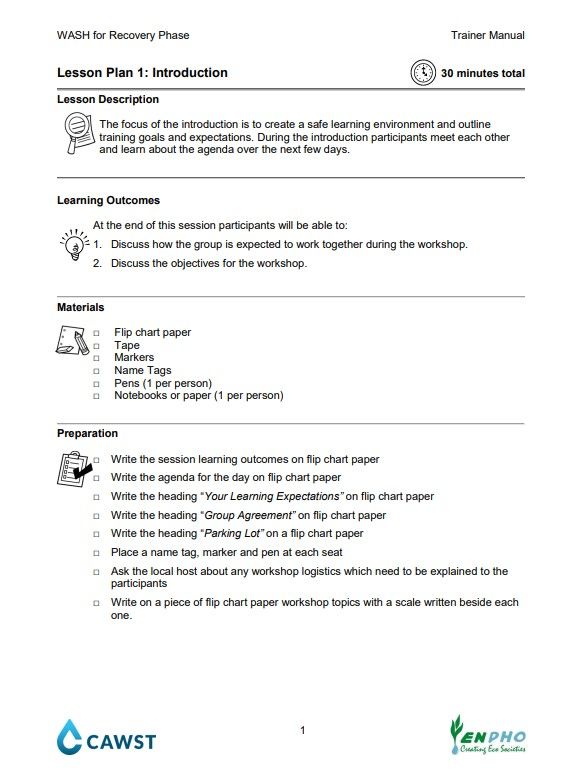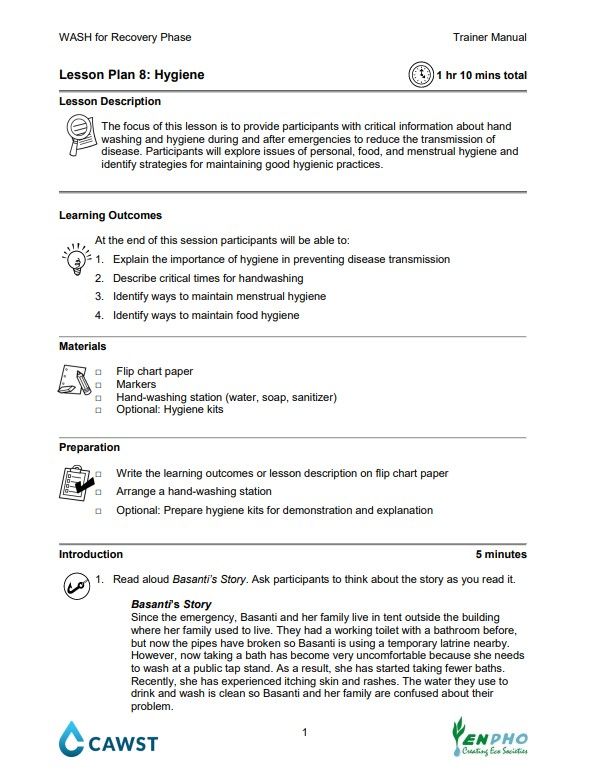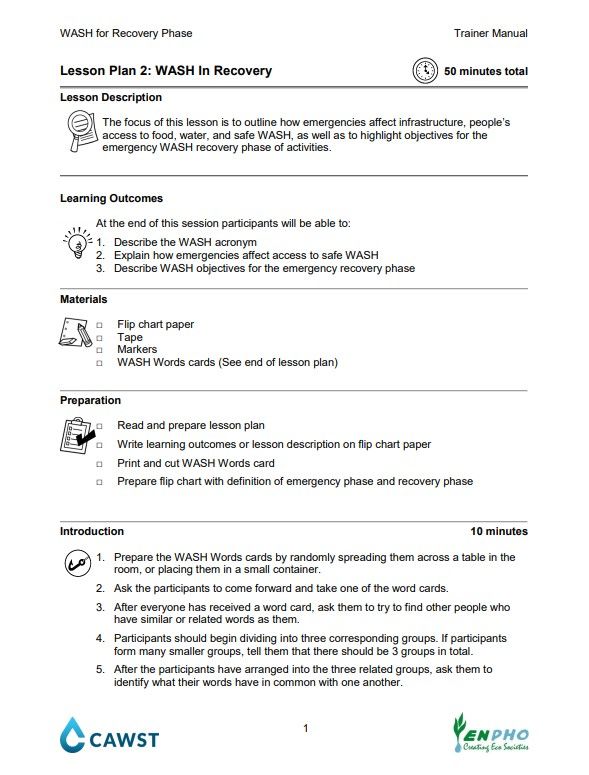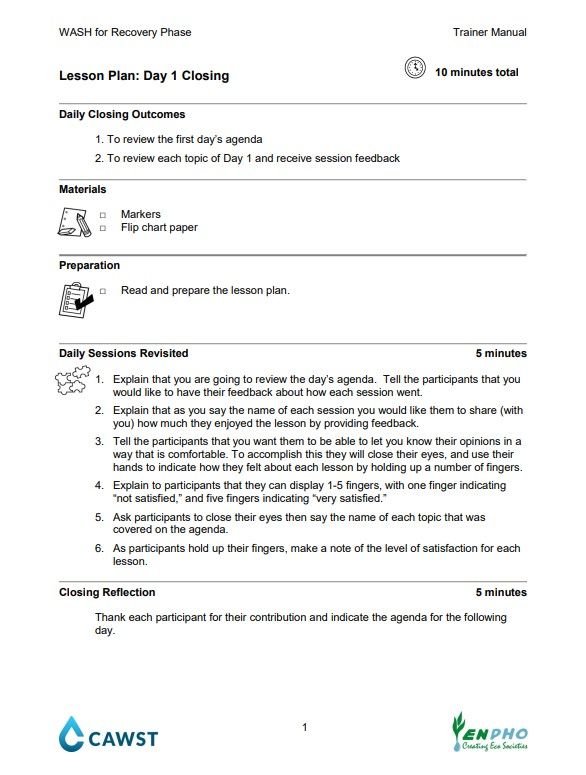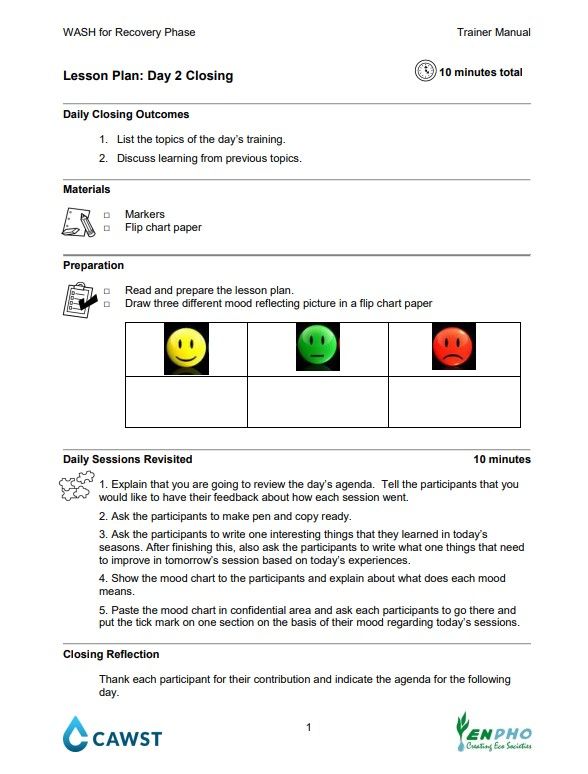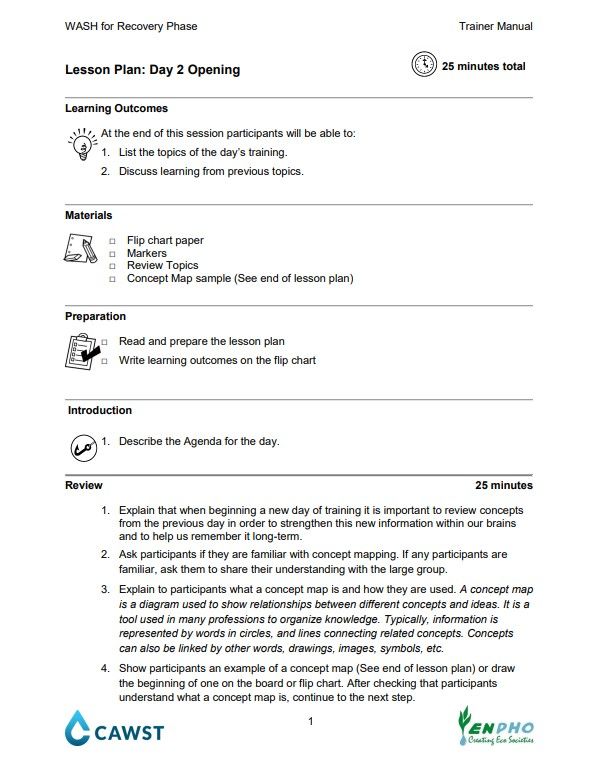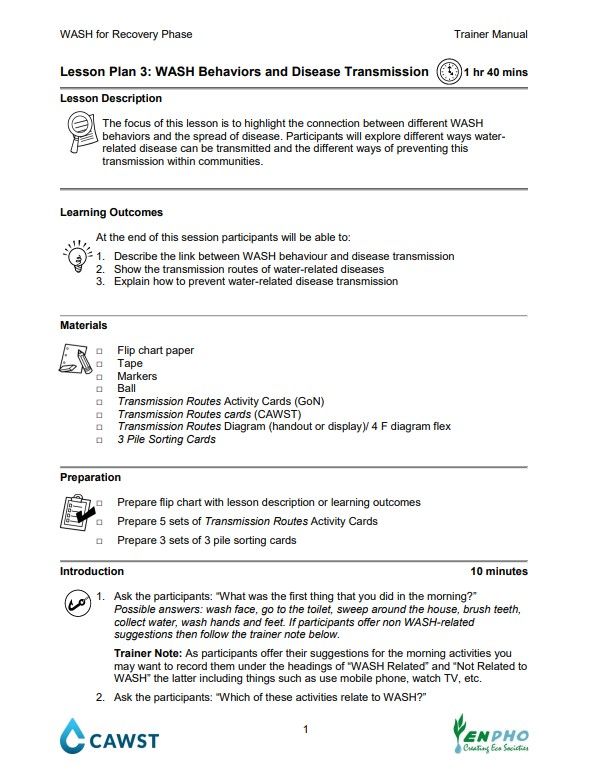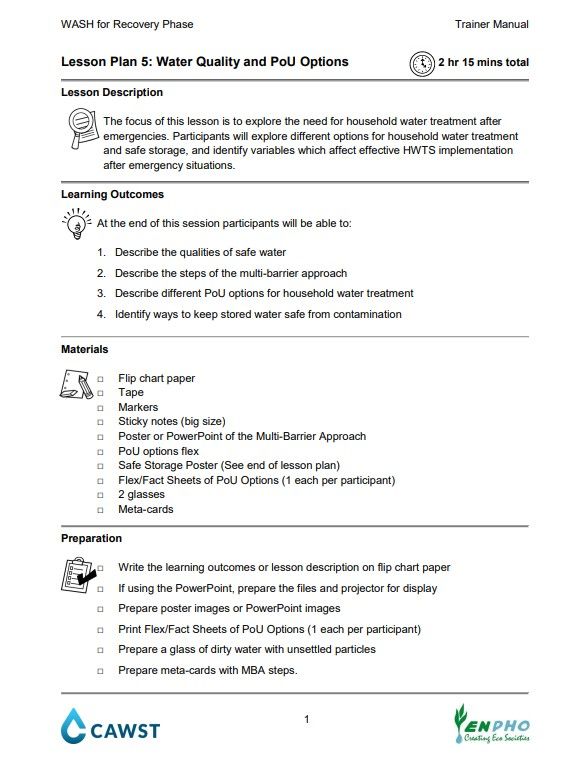This workshop is intended to support people who facilitate WASH awareness workshops. It is based on the practical experience of the Environment and Public Health Organization (ENPHO) and the Centre for Affordable Water and Sanitation Technology (CAWST). It has been developed specifically for the context of Nepal.
The lessons are for WASH promoters and work well for participants with low levels of literacy. Each lesson comes with the materials needed or instructions on how to build the necessary materials.
This workshop is designed considering the existing post emergencies situation of Nepal. We all are well experienced the emergencies in WASH sector aftermath of the mega earthquake (April 25, 2015). As the emergency period has been passed at this moment gradually service provider sectors including Government, INGO’s, NGO’s and CBO’s are putting their steps back from the emergency response. However the WASH aspect remains vulnerable in many districts, which appear as the risk for WASH sector. This workshop will help participants to manage water, sanitation and hygiene in communities with practice based approach.
